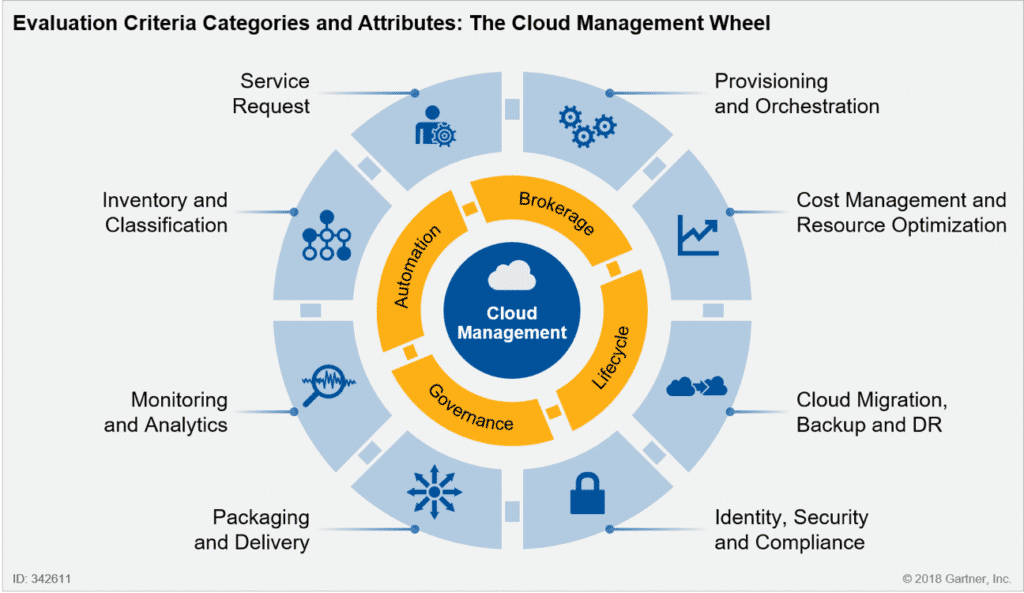
Click to learn more about author Jay Chapel.
There’s a growing job function among companies using public cloud: the Enterprise Cloud Manager. We recently did a study on users which showed that a growing proportion them have “cloud” or the name of their cloud provider such as “AWS” in their job title. This indicates a growing degree of specialization for individuals who manage cloud infrastructure. In some companies, there is a dedicated role for cloud management – such as an Enterprise Cloud Manager.
Why Would You Need an Enterprise Cloud Manager?
The world of cloud management is constantly changing and becoming increasingly complex, which can make it confusing, expensive, and hard to control. Anyone not fully versed in this field may not always know how to handle problems related to governance, security, and cost control.
So, it is important to dedicate highly knowledgeable resources in your organization to cloud management and related cloud job roles. This chart from Gartner gives us a look at all the things that are involved in cloud management so we can better understand how many parts need to come together for things to run smoothly.

Having a role in your organization that is dedicated to cloud management allows others, who are not specialized in that field, to focus on their jobs, while also centralizing responsibility. With the help of an Enterprise Cloud Manager, responsibilities are delegated appropriately to ensure cloud environments are handled according to best practices in governance, security, and cost control.
The role of an Enterprise Cloud Manager is to oversee cloud operations. They know all the ins and outs of cloud management, so they are able to create processes for resource provisioning and services. Their focus is on optimizing their infrastructure which will help streamline all their cloud operations, improve productivity, and optimize cloud costs.
Automation Tools are Essential
With so much going on in this space, it isn’t possible to expect just one person or a team to manage all of this – you need automation tools. The great thing is that these tools work for companies of any size. Primary users can be people dedicated to this full time, such as an Enterprise Cloud Manager, as well as people managing cloud infrastructure on top of other responsibilities.
Why are these tools important? They provide two main things: visibility and action to act on those recommendations. Customers that were once managing resources manually are now saving time and money by implementing an automation tool. Take a look at the automation tools that are set up through your cloud vendor, as well as third-party tools that are available. Setting up these tools for automation will lessen the need for routine check-ins and maintenance while ensuring your infrastructure is optimized.
Do I Really Need One?
If you want your organization to be well informed and up to date, then it is important that you have someone or something in place to oversee your cloud operations – an Enterprise Cloud Manager and automation tools.
